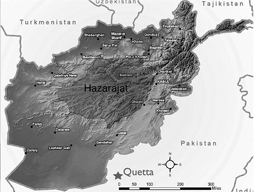December 06-2013
The Rohani Administration has issued a 20-page draft of its proposed “Charter of Citizen Rights,” which is being billed as a huge advance for civil rights in Iran but which appears to contains more loopholes than guarantees.
The plan is to collect comments and proposed revisions from the public for one month and then issue a final document. That procedure is a dramatic change from the normal procedure in Iranian governments, which has been to develop policy behind closed doors and then issue a final policy document by fiat without citizen input.
However, the final Charter will just be issued as a presidential document and not put to a referendum, so it won’t be binding on the Judiciary, Majlis or many agencies of government that come under the control of the Supreme Leader.
For example, the charter contains a ban on torture. Such a ban already exists in the Constitution. The complaints about torture are largely focused on prisons that are under the control of the Judiciary and do not respond to the presidency.
The draft charter also guarantees a right for women to dress as they choose—but with the proviso that their dress must “conform to Islamic and Iranian standards.” Those standards can be set by the Majlis and the police, which are not subject to the promises in the charter.
The charter also pledges freedom of expression and freedom of the press—but with the qualification that such freedoms must be practiced within “the framework of laws and regulations.” That is the complete reverse of the US Bill of Rights, which forbids Congress from imposing restrictions on freedom of the press.
The First Amendment to the US Constitution states: “Congress shall make no law respecting an establishment of religion, or prohibiting the free exercise thereof; or abridging the freedom of speech, or of the press; or the right of the people peaceably to assemble, and to petition the Government for a redress of grievances.”
One Charter provision that clearly falls under the control of the president is a ringing call for transparency, something that President Khatami repeatedly harped on but with little success.
That issue has gotten new attention as the Rohani Administration is saying that agencies under President Ahmadi-nejad hid much economic information.
The draft charter says economic data that may be used to benefit any special interest and could aid in corruption must be made transparent and issued publicly. The draft does not explain the need for that restriction, however. Accurate unemployment statistics would appear to be exempt from public release since they could not be used to benefit a corrupt official.
The draft also says that government officers who violate the charter or are negligent in enforcing its provisions will be punished. Beyond firing staffers, however, the Majlis must make violations of the charter punishable and the Judiciary must convict in individual cases.
The Charter makes clear that it doesn’t offer the public any new rights, which may disappoint citizens. The draft charter says it is not about “creating, expanding or restricting existing rights” but is merely laying down “a collection of the most important citizenship rights.
All the major rights outlined in the draft Charter are actually already guaranteed in the Constitution—but broadly ignored. The Constitution bans torture and forced confessions, promises freedom of speech, guarantees access to defense attorneys and a multitude of other rights that are largely ignored—mostly by the Judiciary.
The Charter, however, would set up a kind of ombudsman’s office to which citizens could go with complaints of violations and seek redress.






















